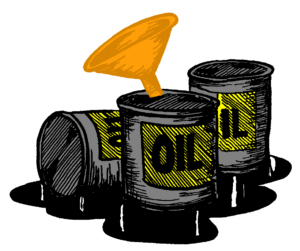Special topics
 While the International Monetary Fund (IMF) expects South Africa’s growth to halve to just 0.6% in 2016, growth in other oil-importing countries across sub-Saharan Africa is projected to remain relatively resilient at 5.2%.
While the International Monetary Fund (IMF) expects South Africa’s growth to halve to just 0.6% in 2016, growth in other oil-importing countries across sub-Saharan Africa is projected to remain relatively resilient at 5.2%.
Nevertheless, the IMF is forecasting a difficult year for the 45-county territory, with its latest ‘Regional Economic Outlook for Sub-Saharan Africa’ projecting growth to fall to just 3% in 2016, a 15-year low – well below the 6% levels that were customary over the last decade and barely above population growth.
The region’s growth has already slowed markedly, with growth in 2015 falling to 3.4%, from 5.1% in 2014. Oil exporters have been hardest hit, with the growth rate in 2015 estimated to have more than halved to 2.6% compared with 5.9% the year before.
Growth in oil-exporting countries is expected to decline to 2.2% in 2016. The further slump in South Africa’s growth forecast, meanwhile, is attributed to low investor confidence, tighter policies, a decline in commodity prices and the drought. The country’s slowdown was in line with a number of other large non-oil commodity exporters, such as Zambia and Ghana.
However, growth in most other oil-importing countries is projected to remain “relatively robust”. Growth in oil-importing countries, excluding South Africa, is projected to fall only modestly to 5.2% in 2016, from 5.4% in 2015.
“More specifically, growth in Kenya is projected to rise to 6%, aided by investment in the transport sector, a pickup in electricity production and a recovery in tourism.
“Similarly, Senegal’s strong growth is expected to remain broadly unchanged at 6.6%, supported by improving agricultural productivity and a dynamic private sector,” the IMF report shows, noting, too, that Côte d’Ivoire is projected to grow by 8.5% on the back of high cocoa prices, good agricultural production, as well as an anticipated boost in investment following the recent Presidential election.
Nevertheless, the report, subtitled ‘Time for a Policy Reset’ argues that a substantial overhaul in domestic policies will be required across the region and particularly among commodity exporters.
“With the external environment now much less supportive . . . a policy reset is needed to reinvigorate the growth momentum,” the report states. Natural resource exporters should adjust to the likelihood that revenue from the extractive sector will be “durably reduced” by containing fiscal and current account deficits and allowing for exchange-rate flexibility. The report also argued that the current challenges provide a strong reminder of the need to advance the economic diversification agenda.
Source : http://classfmonline.com/1.9032485